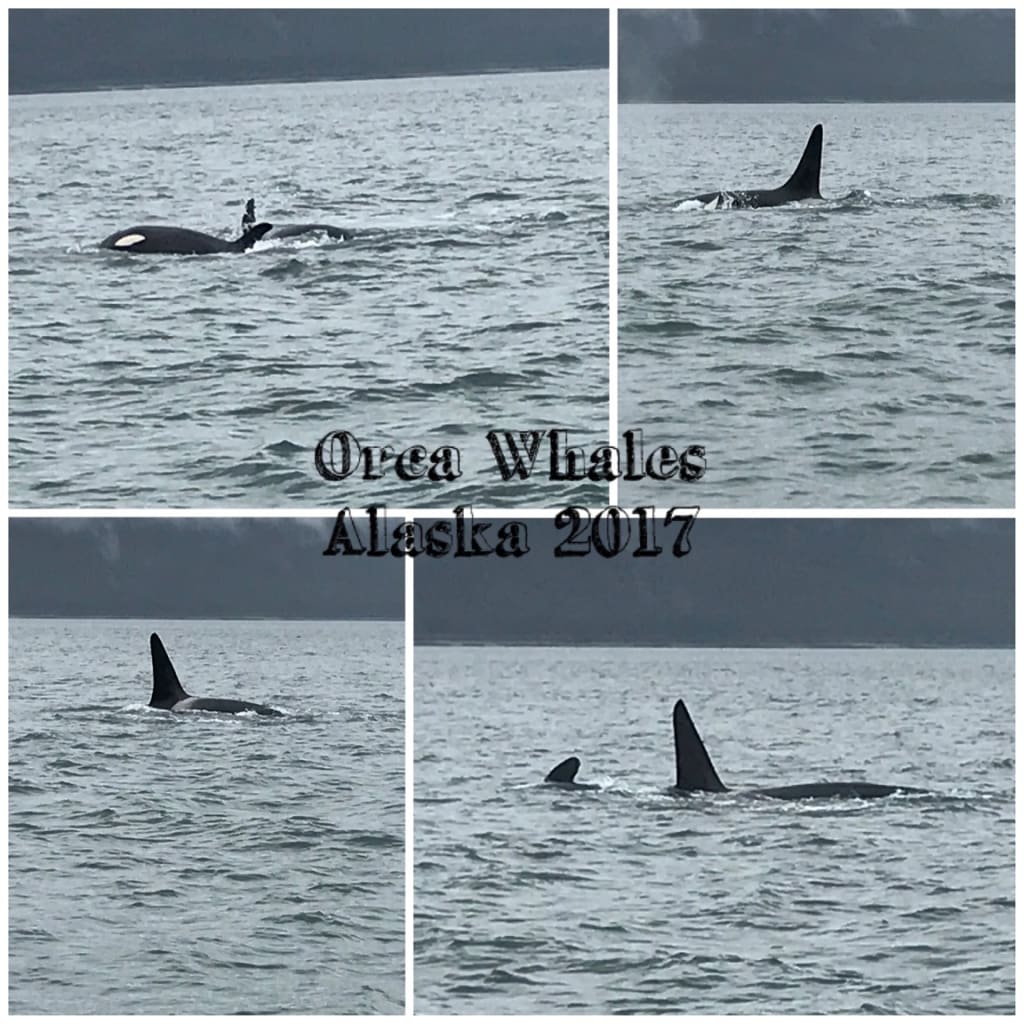Whales, Whales and more Whales
Whales and Why I Recycle!

It was the summer of 2017. The month of June! This proved to be one of the most exciting vacation trips of my life. I have traveled to a lot of exciting places in the world, however I found so much joy right here in the United States of America. I and about 38 plus family members embarked on a family cruise to Alaska. We all flew to Seattle where we toured for a few days before we boarded the ship. Once on board, our excitement truly began. We had the most fun of our entire lives. This trip helped to bond our family even closer and to this day we try to take at least one big family trip a year. (Of course, this trip was BC; Before Covid-19) The remarkable thing about this trip was all the beautiful pictures we captured of animals, bears, seals, eagles, and whales. We flew over numerous monuments and glaciers.
The highlight however were the whales. I have gone on several whale watching excursions in the past only to be disappointed. Most of the time it turned out to be just another boat trip with no whales and unfortunately no pictures. However, we found out that an Alaskan cruise whale watching is one of the best ways to see the largest mammals in their natural habitat. On this cruise, we chartered with an all women crew who had an awesome female Captain. The captain promised us to see all kinds of whales, or we would get our money back. Believe me, she did not disappoint us. The best time to watch whales is from April to November. During this period approximately 600 or more humpback whales will inhabit these waters. Some skeptics feel whale watching impacts the whales’ natural behaviors. They feel whale watching intrudes on their ability to feed, rest, and rear their young. Our boat always stayed a safe distance so we would not infringe on the whale’s natural environment. The captain promised we would see the Humpback whales that traveled to Alaska this time of year to feed in the nutrient-rich waters. Most of the whales also had their young calves with them. We witness these young calves playing with each other like children at play on a playground. Once the captain spotted a whale, she and her remarkable crew would slow down and allow us to truly experience an up-close personal experience. We witnessed a large array of spouts, whale tails, breaches, and a firsthand experience of several species of magnificent whales. The ladies also had sonar and could identify the whales with tags by name and would give us the history of that whale.
We were all so amazed to learn that whales actually regulate the oceans ecosystems. They stir up nutrients from the deep depths when they dive down in the ocean. They also have a huge amount of nutrients in their feces that plants and phytoplankton use to grow. These plants absorb the carbon dioxide from our atmosphere and have been known to release about 50% of the world’s oxygen back into the air we breathe. Whales inhabit all the oceans of the world and some seas.
The picture I have displayed is a group of Orca’s! Of course, we were a very safe distance away and they put on a show for us as if we had paid them to perform. It was because of my admiration for these whales; I became serious about recycling my plastic items. It was featured on the news where a whale had died from consuming plastic milk jugs in the ocean. I wondered how in the world did those jugs get there? From that moment forward, I decided to make sure I recycle. I hope that my one kind act of recycling will one day save the life of a whale. It is so unfortunate that these magnificent creatures face so many man-made threats. Threats like noise pollution from offshore drilling rigs. This noise interferes with their natural sonar and their ability to communicate with each other. Ocean noise places additional physical stress on these animals. So, between ship strikes, plastic pollution, commercial whaling, and numerous other factors; these magnificent creatures are being driven to extinction.
My picture represents more than Orcas’ at play. It represents nature at its’ finest. I have come to realize that we are responsible for these magnificent creatures. The ocean is their domain, and they have a right to a clean environment. Hopefully, this article will inspire more people to recycle. This one small act can make a large difference to the life of all whales.
About the Creator
Enjoyed the story? Support the Creator.
Subscribe for free to receive all their stories in your feed. You could also pledge your support or give them a one-off tip, letting them know you appreciate their work.





Comments
There are no comments for this story
Be the first to respond and start the conversation.